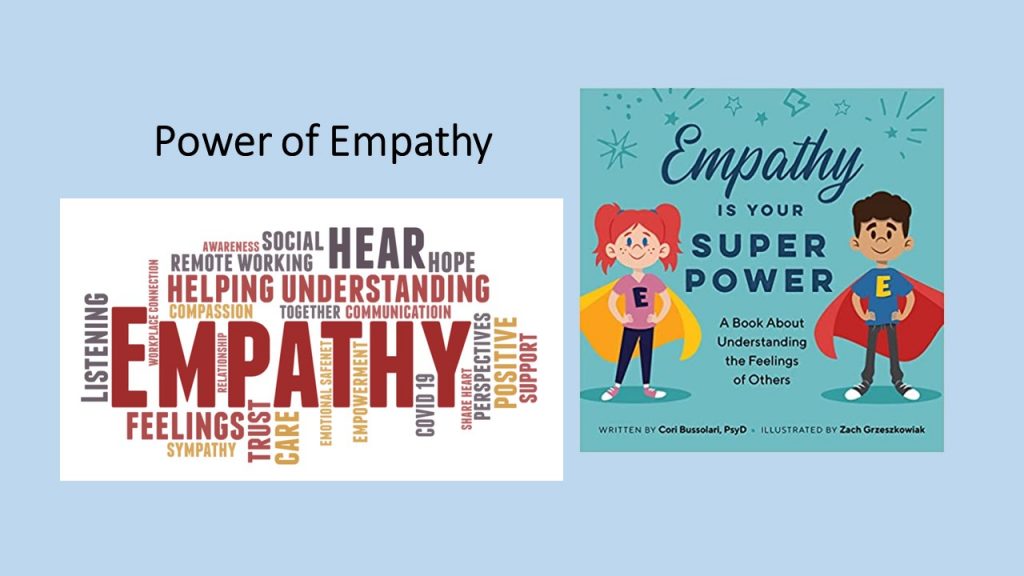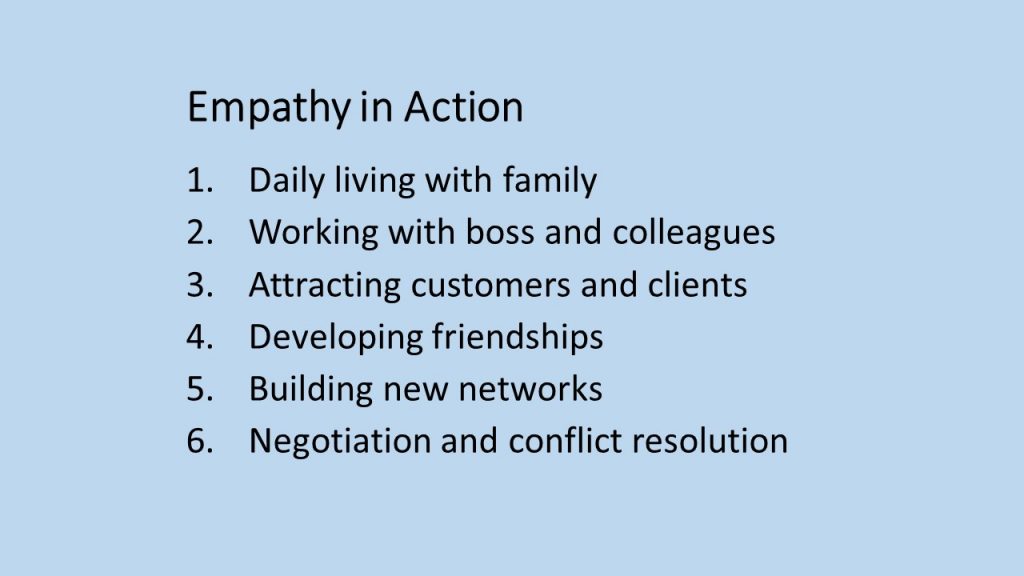
143. The Power of Empathy | 同理心的力量
– Musings of Dr. Jamie C. Hsu, 8.20.2022
One of the most critical attributes of successful leaders is their understanding and application of empathy. According to the Cambridge Dictionary, “Empathy is the ability to share someone else’s feelings or experiences by imagining what it would be like to be in that person’s situation.”
One of the most common examples is how we try to understand babies. Why are they crying? What do they fuss about? Are they hungry, cold, hot, or sleepy? We are putting ourselves in the baby’s shoes and trying to meet their unspoken needs and desires. But somehow, when we deal with adults, spouses, colleagues, customers, and clients, we forget to listen and understand them. We are too anxious to express our points of view, as well as eager to sell our products and ideas. We forget to figure out the other person’s needs, interests, and emotions.
Another simple example I have seen in my consulting work is how engineers and researchers present their work and ideas. Oftentimes, the presenters are eager to go through all the details of the technical work and do not pay attention to the audience, who is totally lost in the technical mumbo jumbo. A good practice is to think about what is on the minds of the audience and why they would want to listen to you.
Any effective sales consultant will first inquire about your needs and preferences before recommending a product to you. But we sometimes offer opinions or advice to our family and friends without first inquiring about their intention and needs. The ability to listen with our hearts is a skill all great leaders must possess.
Another application of empathy is in negotiation or arguments. Instead of stating your position and defending the rationale, it might be more fruitful to understand your opponent’s viewpoint, concerns, and needs. Addressing and alleviating their concerns might be a more effective way to soften their opposition. (In Blog 56, I offer some more specific steps in conflict resolution.)
Next time, when you have a chance to make a speech, engage in a debate, or propose an idea, make sure you guess the other person’s emotion, state of mind, fears, or desire. You’ll be pleasantly surprised at how others become more willing to talk and work with you. I hope you’ll learn and apply empathy in every aspect of your life and enjoy its power.


同理心的力量 (2022/08/20)
-作者 許俊宸博士
-中譯 薛乃綺
成功領導者最關鍵的特質之一,在於他們對同理心的理解與運用。根據國語辭典[1]的釋義,“同理心是指進入他人的內心世界,能感同身受。對其所感受的任何經驗能保持一定程度的敏感,但不做判斷,是一種與其同調的態度。”
最常見的例子之一,就是我們如何試著了解寶寶。他們為什麼哭呢?他們在鬧騰什麼?是餓嗎、冷嗎、熱嗎、睏嗎?我們設身處地為寶寶們去猜想,努力滿足他們潛在的需求和慾望。但不知為何,當我們與成年人、另一半、同事、顧客或客戶打交道時,卻往往忘了去傾聽和理解他們。我們太急於表達自己的觀點,急於推銷自己的產品和想法,卻忘記了弄清楚對方的需求、興趣和情緒。
另一個例子是我曾經在作諮詢時碰到過的。工程師和研究人員如何展示他們的工作和想法。很多時候,作報告的人都很急著說明技術項目的細節,而沒有注意到聽眾已經完全迷失在技術性的繁文縟節中。一種好的作法可以是去考慮聽眾的想法、以及他們為什麼要聽你的。
任何優秀的銷售顧問都會在對你推薦產品之前,先詢問你的需求和偏好。但是我們有時會在沒有事先詢問對方的意圖和需求情況下,向家人和朋友提供意見或建議。用心傾聽的能力,以及善用同理心, 是所有偉大領導者必須具備的技能。
同理心的另一個應用是談判或辯論。與其陳述你的立場和捍衛理由,了解對方的觀點、擔憂和需求,可能效果更好。解決和減輕他們的擔憂,或許是軟化他們反對的更有效的方法。(如果你對於這個議題有興趣,我的Blog 56提出了一些更具體的解決衝突之道。)
下次,當你有機會發表演說、參與辯論或提出一個構想時,一定要猜測對方的情緒、心情、恐懼或慾望。你會驚喜地發現其他人變得更願意與你交談和工作。我希望你能在生活的各個方面學習以及運用同理心,並享受它的力量。
[1] 本處引用教育部重編國語辭典修訂本中對於同理心的釋義。


